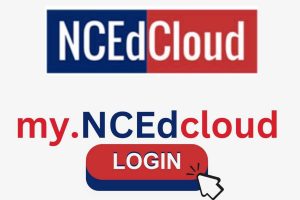Content Attributes

In the ever-evolving landscape of professional development, individuals and organizations are continually seeking effective learning strategies to enhance skills and knowledge. One of the ways to achieve this is by a psychometric testing. However, it’s important to note that while psychometric testing can provide valuable insights into an individual’s abilities and preferences, it is just one tool in the arsenal of professional learning strategies. In this article, we will explore a range of different approaches to professional learning, each with its unique benefits and applications.
1. Formal Education
Formal education remains a cornerstone of professional development. Pursuing a degree, certification, or diploma in one’s field of interest provides a structured and comprehensive learning experience. Moreover, formal education offers professionals a chance to delve deep into their chosen field, allowing them to specialize and gain expertise.
Whether it’s enrolling in a university program or participating in online courses, formal education equips professionals with in-depth knowledge and recognized credentials. Whether it’s a traditional university program or the flexibility of online courses, formal education equips professionals with the foundation they need to excel in their careers.
2. On-the-Job Training
On-the-job training involves learning by doing. Many professionals acquire valuable skills through hands-on experience within their workplaces. Mentoring, shadowing, and apprenticeships are effective ways to gain practical knowledge while contributing to the organization’s goals. This strategy fosters a deep understanding of the industry and its specific demands.
3. Workshops and Seminars
Attending workshops and seminars offers professionals the opportunity to engage with experts and peers in their field. These events are usually focused on specific topics or skills, providing concentrated learning experiences. Interactive sessions, discussions, and networking at such gatherings can be instrumental in professional growth.
4. Online Learning Platforms
The digital age has ushered in an abundance of online learning platforms that offer courses, tutorials, and webinars. Platforms like Coursera, edX, and LinkedIn Learning provide a wide range of subjects and are accessible from anywhere with an internet connection. Universities also offer online master’s degrees like masters in HR management and MBAs. This flexibility makes online learning a convenient choice for busy professionals.
5. Professional Associations
Many industries have professional associations that offer resources, conferences, and networking opportunities. Joining such associations can keep professionals informed about the latest industry trends, connect them with like-minded individuals, and open doors to career advancement.
These associations often host annual conferences where professionals can gain valuable insights and exchange ideas with experts in their field. Becoming an active member of a professional association can also enhance your credibility within your industry and provide access to specialized training and development programs.
6. Self-Paced Learning
Self-paced learning allows individuals to set their own learning goals and progress at their preferred speed. It often involves reading books, articles, or watching educational videos. This strategy gives professionals autonomy over their learning journey and can be tailored to their specific interests and needs.
7. Collaborative Learning
Collaborative learning involves working with colleagues or peers to share knowledge and solve problems together. Group discussions, brainstorming sessions, and collaborative projects can stimulate creativity and offer diverse perspectives, enhancing the learning experience.
8. Conferences and Trade Shows
Industry-specific conferences and trade shows provide exposure to the latest technologies, trends, and best practices. These events often feature keynote speakers, panel discussions, and hands-on demonstrations, making them valuable sources of inspiration and education.
9. Feedback and Reflection
Self-improvement often hinges on reflection and feedback. Seeking feedback from supervisors, peers, or mentors can help professionals identify areas for improvement. Regular self-assessment and goal-setting ensure ongoing personal and professional development.
In conclusion, professional education is a dynamic and multifaceted journey. Different strategies suit different individuals and circumstances. Combining several approaches can be the most effective way to stay ahead in today’s competitive job market. By embracing formal education, on-the-job training, workshops, online learning, and other strategies, professionals can continuously evolve and thrive in their careers.



